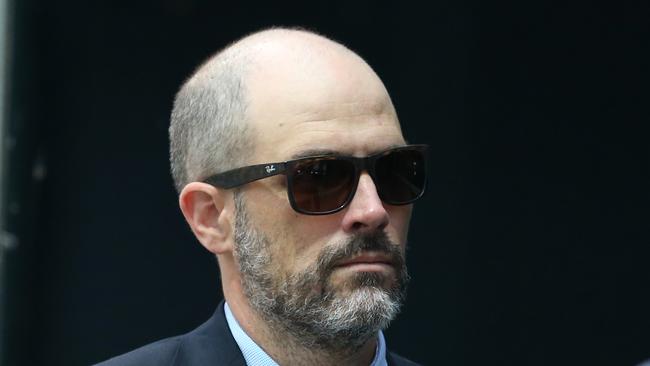DNA lab inquiry: Cops hoodwinked by manager’s catalogue of lies and cover-ups
Senior police were hoodwinked by the head of Queensland’s DNA testing laboratory into accepting a shoddy new testing process.

Senior police were hoodwinked by the head of Queensland’s DNA testing laboratory into accepting a shoddy new testing process, resulting in crime scene samples rich with DNA being written off by the lab as having “no DNA”.
Since 2018 it is likely to have affected thousands of samples which will need to be retested in an effort to catch offenders suspected of having gotten away with murders, rapes and violent assaults.
DNA inquiry commissioner Walter Sofronoff KC was scathing in his findings about the overall conduct of the lab’s longtime managing scientist, Cathie Allen, who was found to be a bully, dishonest and acting without proper regard for victims of crime.
Mr Sofronoff’s strongest criticisms were for her role in thwarting police investigations and victims of crime after lying to police about the purported merits of minimising lab testing of priority samples.
He found that a 2018 laboratory document, known as an options paper, was a destructive spear in a dishonest but successful campaign to persuade police to accept the poor testing process.
For the lab, this third-rate process for samples from violent crimes would save time and money, with less testing performed – but it meant the DNA of criminals went undetected.
The architects of the dishonest options paper were Ms Allen, her deputy Justin Howes and another senior scientist, Paula Brisotto.
However, Ms Allen was singled out for the most fierce criticism. “Even to a scientific layperson the contents of the document, and especially its conclusions and recommendations, are remarkable,” Mr Sofronoff wrote.
“Its most conspicuous attribute is that it represents a business case analysis that might have been written for a factory making a commercial product whose owners’ success depended solely upon achieving the best continuation of speed of supply at the lowest cost in time and money to the factory.
“There is not the slightest evidence that the author appreciated the status of the laboratory as a scientific institute whose only reason for existence is to serve the administration of criminal justice by the provision of criminal intelligence to police and probative evidence to the courts.
“This point is a fundamental one. As will be seen, this warped perspective permeated almost every aspect of the management of the laboratory and has been responsible for most of its failures.
“In a particular case a 1 per cent chance of getting a profile was a chance that must be taken, where serious crimes are concerned.
“There could be no possible warrant for declining to pursue evidence in such cases just because cogent evidence was obtainable only 10 per cent of the time.
“I was informed by a senior police investigator that in homicide cases he would be glad to have a 1 per cent chance of getting a profile, if that was all that there was.”
The options paper falsely claimed the change in process would have an impact on fewer than 2 per cent of samples but the statistics cited in the paper were deeply misleading. When police asked on a relatively small number of occasions for samples to be retested by the lab, between 30 per cent and 60 per cent of the samples yielded probative DNA.
This was despite the lab having reported to police that those same samples were effectively useless due to there being “DNA insufficient for further processing”.
Mr Sofronoff said Ms Allen would have been aware the process she wanted would compromise crime detection. “The conclusion is inescapable, and I find that Ms Allen lied to her staff … And she lied to me about it when she gave evidence,’’ he wrote in his final report. “I reject her attempt at explaining the inexplicable.
“Scientists continued to raise pertinent objections to the course that had been adopted and about which their views were either not sought or were ignored.”
He found police were “misled about what the adoption of the new process would mean for investigations”, and that police had not agreed for Priority 1 cases – the most grave violent crime cases – to be excluded from testing.
“Her attempts to explain these falsehoods to me were equally dishonest,” he wrote.
Mr Sofronoff found that when police were attempting to ask sensible questions of Ms Allen, she was “marshalling every argument that she could concoct” to maintain the earlier lies.



